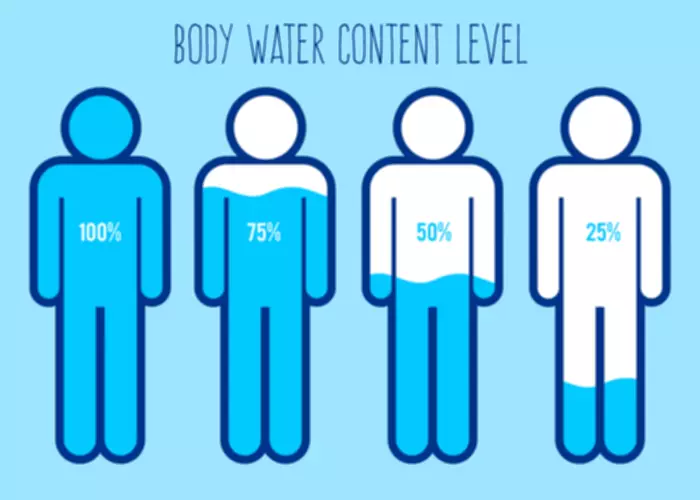

That margarita may seem refreshing but the added sugar creates an acidic environment in your body. Consuming foods with high water content, such as fruits and vegetables, can help counteract the dehydrating effects of alcohol. Drinking water before, during, and after alcohol consumption can help prevent dehydration. Water can help replace lost fluids, maintain electrolyte balance, and aid kidney function.
Drinking pattern:


Excess calories, irritation of your stomach lining, and dehydration are all causes of bloating after drinking alcohol. However, research is mixed on whether these beverages increase does wine make you dehydrated urine output significantly. Coffee, tea, and soda contain caffeine, a central nervous system stimulant that acts as a natural diuretic to increase urine production (1). The water we drink today is either tap water (full of chlorine and other chemicals) or filtered water (completely stripped of mineral content). So, if you’re looking to hydrate quickly after alcohol consumption, tap water probably isn’t the best option.
How to Treat Alcohol Bloating
If you’re looking for a hydrating beverage, alcohol won’t make the grade. Alcohol functions as a diuretic, meaning it makes you urinate more, leaving less fluid in your blood and potentially leading to dehydration. Drinking alcohol decreases the amount of vasopressin (an anti-diuretic hormone that helps the kidneys hold onto water) made in the body. As a result, you will lose water from your body after drinking alcohol.
What to Do If You’re Already Dehydrated from Alcohol
This happens when a person loses more fluids than they take in. Drink plenty of plain water, an electrolyte drink or sports drink, and eat water-rich, easily digestible foods. When you don’t adequately replace this excess loss of fluids, you become dehydrated. Alcohol dehydration occurs because alcohol causes you to lose too much fluid from your body.


- When we drink alcohol, it gets absorbed into our bloodstream through our stomach but mostly through our small intestines.
- If you’re 100 kilos, it’s a 100 ml of urine – 110 is a 110 ml of urine per hour.
- This includes most hard liquor like whisky, vodka, rum, and gin.
- Alcohol’s impact on memory and consciousness is based on its effect on the hippocampus, the part of the brain that controls memory and learning.
- That will help you stay at a safe level for your total intake of caffeine.
Alcohol can lead to dehydration, but why does alcohol dehydrate you? When we drink alcohol, it gets absorbed into our bloodstream through our stomach but mostly through our small intestines. From there, the alcohol is processed by enzymes in the liver.
- However, due to how alcohol affects the production of ADH, you will still become dehydrated after drinking beer.
- Alcohol-induced dehydration can also decrease reaction time, making it more challenging to respond quickly to unexpected situations, such as sudden stops while driving or avoiding obstacles.
- The amount of alcohol you consume will influence the symptoms you experience.
- But because wine has a higher alcohol content than most types of beer, it’s more dehydrating than the latter.
- More gas means more carbon dioxide entering your body and your stomach will fill up like a balloon, causing painful alcohol bloating.
Never Drink on an Empty Stomach
If someone is experiencing any of these symptoms, they should seek immediate medical attention. The best way to rehydrate quickly is to regain the minerals that were flushed out due to excessive urination. Dehydration certainly contributes to hangovers but it’s just a piece of the puzzle. Studies have pointed to additional causes, such as inflammation, gastrointestinal irritation, and poor sleep.
Sipping on one whisky all evening will likely mean you ingest less alcohol overall than three or four standard glasses of wine. Diluting a vodka with soda will also mean it’s more hydrating overall, though it’ll still have diuretic effects. According to the Society for Endocrinology, ADH is produced and released by the pituitary gland. It’s the reason why you can usually sleep through the night without having to urinate. And when ADH release is suppressed, your body’s natural mechanism for holding onto fluid ceases to function. This is important because increased urination flushes electrolytes and nutrients out of your system, as well as fluid.
Because of these factors, there’s no hard and fast rule for how much water you should consume. “If you get thirsty, drink water. If you’re not thirsty, you don’t need to drink water.” Water is obviously the best source of fluid, but realistically, do other beverages, including alcohol, count toward your daily quota, and if so, how much? Here is everything you need to know about alcohol and hydration.
Which Drinks Are the Most Likely to Cause Bloating?
Without replenishing electrolytes, the body won’t be able to utilize the water you consume, leaving you dehydrated despite drinking plenty of fluids. Electrolyte imbalance drug addiction can exacerbate dehydration and worsen the unpleasant aftereffects of drinking alcohol, including headaches, low energy, muscle aches, and poor sleep. As you can see, wine can dehydrate you if you drink it on an empty stomach or if you drink multiple glasses in a row without drinking water to accompany them.
Related Content


Chronic heavy drinking can result in high blood pressure, which is a leading cause of kidney disease. It can also weaken immunity, increasing a person’s risk of infections. According to the CDC, heavy drinking equates to more than three drinks per day or eight drinks per week for females and more than four drinks per day or 15 drinks per week for males. Consuming alcohol carries other health risks besides dehydration. These risks change depending on how much alcohol a person consumes and how often. Dehydration is when the body does not have sufficient amounts of fluid to function effectively.